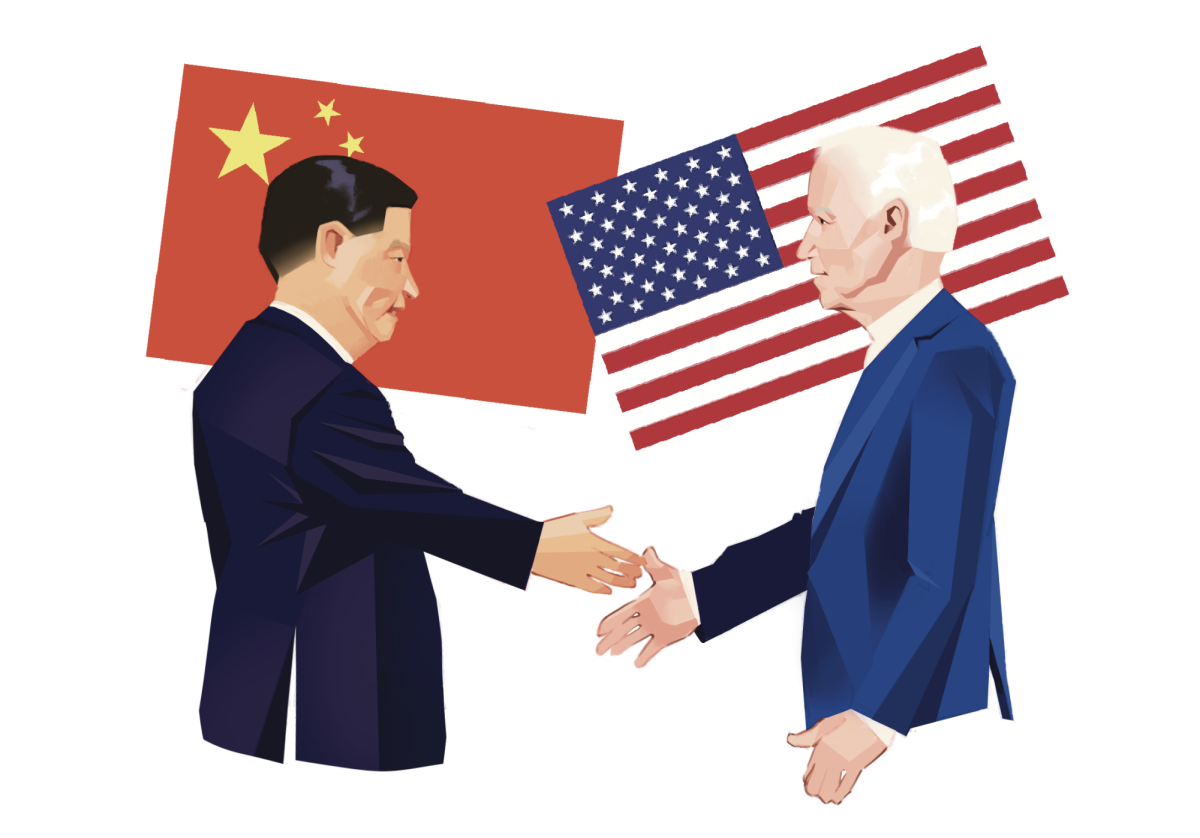For the first time in six years, Chinese President Xi Jinping visited the U.S., this time to meet President Joe Biden at the Asia-Pacific Economic Cooperation summit held on Nov. 15 at the Filoli Estate in San Mateo County.
Since Biden’s last meeting with Xi in November 2022, senior Sophia Kim, who is currently taking Foreign Policy Honors, said both countries are trying to more openly communicate about current and potential economic tensions.
“It was another opportunity for Biden and Xi to touch base, update and reaffirm commitments on joint goals they have, including boosting trade, perhaps trying to stop or lessen the trade war between the U.S. and China, as well as combat climate change,” Kim said.
During the meeting, both countries agreed to reopen military communication and reduce fentanyl production. But the leaders disagreed on North Korean aggression, Iranian influence and Taiwan’s global position.
U.S. Government and Contemporary World History teacher Adam Yonkers said this meeting was a necessary continuation of past conversations between the U.S. and China.
“Obama had really made a point with Hillary Clinton to do a pivot to Asia, which was, ‘Let’s make Asia much more of the principal aim of our foreign policy,’” Yonkers said. “After Obama, Trump and Xi had particular things that they agreed on, and particularly things that they didn’t, but it was better than it has been under Biden. Since 2020, there haven’t been as many high-Wlevel meetings.”
According to data from December 2023, about 20% of the world’s population is Chinese, so Yonkers said it is especially important for the U.S. to engage in conversations China.
However, Yonkers said the U.S. had an advantage at the most recent meeting given China’s substantial economic issues caused by its aging population and major multinational companies pulling out of China because of privacy and transparency concerns.
“China is in a position where they have been trying to assert themselves in the South China Sea, with One Belt One Road initiatives worldwide and with their Chinese bank, but they still need the United States,” Yonkers said. “I strategically think that it was interesting that Xi Jinping wanted to normalize relations with Biden.”
While China relies on U.S. support in some aspects, senior Spencer Wu-Chin, another student in Foreign Policy Honors, said China is attempting to push the U.S. out of its dominant global position.
“America just hasn’t been able to muster the resources compared to the Belt and Road Initiative, and a lot of countries don’t feel comfortable with America coming in and funding infrastructure projects, especially in Latin America,” Wu-Chin said. “Instead of making it into a competition between the U.S. and China, I think it should be more about collaboration with these developing nations.”
Kim also said although Biden and Xi still do not agree on issues like the Russia-Ukraine war and Taiwan’s global position, the meeting was a step towards positive relations.
“Some could argue that competition is the way we spur the growth of innovation,” Kim said. “However, competition in terms of great power competition can be geopolitically polarizing, creating a pick-a-side conflict for any third party countries. So I do believe cooperation is v in ensuring peace and security worldwide but competition in innovation and technology.”
And Wu-Chin said the U.S. should further step in to respond to China’s human rights issues, which Biden raised concerns about during the meeting.
“The United States just isn’t doing a good job of saying, ‘Hey, don’t do that’ or putting protections in place,” Wu-Chin said. “China has such a huge role in global trade that the world is reliant on Chinese manufacturing. They’re always going to have a place to sell Uyghur-made products like cotton and lithium batteries, so without serious dedication, it’s just going to continue being an issue, and get to the point where we’re not going to be able to deal with it anymore. The United States is trying to postpone eventual issues by trying to be more pragmatic, but ultimately, that creates more problems down the line.”
Because of these long-standing issues, Yonkers said students should learn more about U.S. foreign policy because international issues can quickly affect individuals in local communities.
“We also are pretty distracted right now with what’s happening with Gaza and Israel and Ukraine, and those are front burner issues,” Yonkers said. “But China’s always had a foreign policy that was much more of a long game.”
Wu-Chin said as students become old enough to vote, it is crucial for them to learn more about international politics.
“We’re going to be voting very soon,” Wu-Chin said. “You have a civic responsibility to know what’s happening in the world because you live in a democracy, and you’re allowed to vote. Even if you don’t believe in voting, the relations between the United States and China will continue to have widespread effects, and I think it’s important for people to be aware of what’s happening.”
















